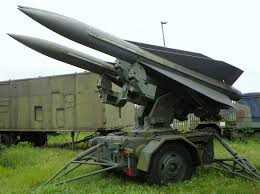U.S. DECISION PENDING ON TAIWAN’S HAWK MISSILE FUTURE
Why in the news?
Taiwan’s defence minister announced the United States will decide the future of Taiwan’s decommissioned HAWK missiles, a system historically significant but outdated, affecting Taiwan’s strategic defence planning.
About the HAWK Missile:
- The HAWK (Homing All the Way Killer) MIM-23 is an all-weather, low-to-medium altitude surface-to-air missile system, developed by Raytheon, a prominent American defence company.
- Originally intended for targeting aircraft, the HAWK system was later upgraded to intercept missiles, with its first deployment in 1960
- Despite extensive upgrades, it was eventually replaced by the MIM-104 Patriot system in theS. Army by 1994, and phased out entirely from U.S. service in 2002. The U.S. Marine Corps replaced it with the FIM-92 Stinger, a man-portable, infrared-guided missile.
Current Usage and Specifications
- The HAWK system, despite being outdated, remains operational in various countries, especially among NATO allies, and in regions across Asia and the Middle East.
- Utilising a Semi-Active Radar Homing (SARH) guidance system, it can engage multiple targets simultaneously and performs well in diverse weather conditions.
- Transported via the M192 towed triple-missile launcher, the HAWK missile is propelled by a dual-thrust motor, consisting of both boost and sustain phases.
- Though capable and versatile, the HAWK missile system is generally considered less advanced than contemporary missile defence systems like the Patriot.
About HAWK :
- HAWK stands for “Homing All the Way Killer”.
- Entered US Army service in 1959 during the Vietnam War as a medium-range, surface-to-air missile.
- Received major upgrades, including the I-HAWK (Improved HAWK) in 1971, enhancing kill probability to 85%.
- Predecessor to Raytheon’s PATRIOT missile defence system of the 1990s.
- US forces phased out HAWK in early 2000s.




